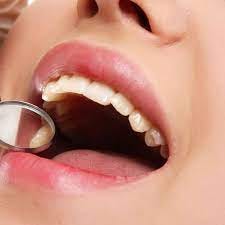Can I Eat Normally After Full Mouth Rehabilitation?
A comprehensive dental treatment that rebuilds and restores all teeth in both jaws, improving bite, function, and overall oral health.
A common concern for patients undergoing major dental treatment is can I eat normally after full mouth rehabilitation? This procedure is designed not just to restore the aesthetics of your smile but to significantly improve functionality—including chewing and eating. While some dietary adjustments may be required during the recovery phase, the ultimate goal of Full Mouth Rehabilitation is to help you return to a normal, comfortable, and nutritious diet without limitations.
Understanding Full Mouth Rehabilitation:
Full mouth rehabilitation, also referred to as full mouth reconstruction, involves rebuilding or restoring all or most of the teeth in both the upper and lower jaws. This can include a combination of:
Dental crowns and bridges
Veneers
Dental implants or dentures
Root canals
Gum therapy
Orthodontic work
It is typically recommended for patients with widespread tooth damage, decay, missing teeth, or bite misalignment. The goal is to provide a durable, functional, and aesthetically pleasing dental solution tailored to your needs.
Eating During the Recovery Phase:
Immediately following your full mouth rehabilitation, your dentist may recommend a soft food diet while your mouth adjusts to the new restorations. During this period, it’s important to be cautious to avoid damaging any newly placed dental work.
Recommended soft foods include:
Mashed potatoes, scrambled eggs, yogurt
Smoothies and meal replacement shakes
Soft fruits like bananas and avocados
Cooked vegetables and soups
Soft fish, ground meats, or tofu
Foods to avoid during recovery include:
Hard nuts and crunchy snacks
Sticky candies or chewing gum
Tough meats or crusty bread
Extremely hot or cold items that may irritate sensitivity
The length of the recovery diet varies depending on the procedures you’ve had, such as implants (which need healing time) or crowns (which may feel sensitive initially).
Returning to a Normal Diet:
So, can you eat normally after full mouth rehabilitation once the healing process is complete? In most cases, the answer is yes—with even greater comfort and efficiency than before. After your mouth has fully adjusted:
Chewing becomes easier and more effective, especially if missing teeth were replaced
Properly aligned teeth allow for better distribution of bite force
Restored or crowned teeth are stronger and more resistant to wear
However, to protect your investment and maintain your results, you should continue being mindful of certain eating habits.
Long-Term Dietary Tips for Preserving Results:
Even though full mouth rehabilitation restores function, it’s essential to take good care of your new dental work. Here are long-term dietary practices to follow:
Avoid Chewing on Hard Objects
Don’t use your teeth to open bottles, bite pens, or chew ice, as this can crack restorations.Limit Sugary and Acidic Foods
Even with crowns and implants, natural tooth structure and gums are still vulnerable to decay and inflammation.Cut Tough Foods into Smaller Pieces
Slicing meats and fibrous vegetables makes them easier to chew and reduces stress on restorations.Use Both Sides of Your Mouth When Chewing
Distributing pressure evenly helps maintain balance and avoids overuse of one side.Stay Hydrated and Eat a Balanced Diet
Water and nutrient-rich foods support gum health and overall oral wellness.
Following these guidelines can help you enjoy all your favorite foods while preserving the benefits of your rehabilitation for years to come.
When to Contact Your Dentist?
After your Full Mouth Rehabilitation Treatment is complete, routine follow-up visits are crucial. Contact your dental team if you experience:
Difficulty chewing even after the recovery phase
Persistent sensitivity or discomfort
Clicking or shifting in dental restorations
Signs of inflammation or bleeding around the gums
Regular check-ups will ensure that all components of your restoration are functioning properly and remain in excellent condition.
In summary, if you’ve been asking can I eat normally after full mouth rehabilitation, the answer is a confident yes—with a few mindful habits and a short recovery period. Once fully healed, your new smile will support a varied, nutritious diet and give you the freedom to enjoy meals without worry.



